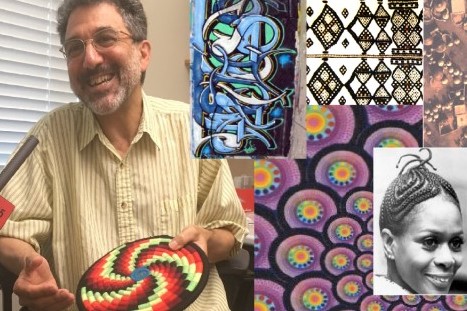
Ron Eglash, professor of information and of art and design, was recently featured in a wide-ranging interview on NPR affiliate WBEZ’s program Worldview. Eglash discusses his passion for bringing the sophisticated math and computing ideas at the center of cultural traditions to classroom settings to inspire underrepresented students to pursue studies in STEM fields.
According to Eglash, indigenous cultures often employ complex algorithms for practical, artistic, or spiritual purposes that mirror modern computing. The field Eglash invented to study this phenomenon is called “ethno-computing.”
Eglash has worked with educators to teach modern processes using indigenous knowledge systems. Students use a website called “Culturally Situated Design Tools” to re-create cultural staples like African braids, Navajo rugs, and Latin beats as the algorithms they really are.
